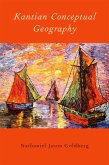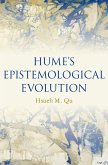In this volume, Karl Ameriks explores 'Kantian subjects' in three senses. In Part I, he first clarifies the most distinctive features-such as freedom and autonomy-of Kant's notion of what it is for us to be a subject. Other chapters then consider related 'subjects' that are basic topics in other parts of Kant's philosophy, such as his notions of necessity and history. Part II examines the ways in which many of us, as 'late modern,' have been highly influenced by Kant's philosophy and its indirect effect on our self-conception through successive generations of post-Kantians, such as Hegel and Schelling, and early Romantic writers such as H?lderlin, Schlegel, and Novalis, thus making us 'Kantian subjects' in a new historical sense. By defending the fundamentals of Kant's ethics in reaction to some of the latest scholarship in the opening chapters, Ameriks offers an extensive argument that H?lderlin expresses a valuable philosophical position that is much closer to Kant than has generally been recognized. He also argues that it was necessary for Kant's position to be supplemented by the new conception, introduced by the post-Kantians, of philosophy as fundamentally historical, and that this conception has had a growing influence on the most interesting strands of Anglophone as well as Continental philosophy.
Dieser Download kann aus rechtlichen Gründen nur mit Rechnungsadresse in A, B, BG, CY, CZ, D, DK, EW, E, FIN, F, GR, HR, H, IRL, I, LT, L, LR, M, NL, PL, P, R, S, SLO, SK ausgeliefert werden.









